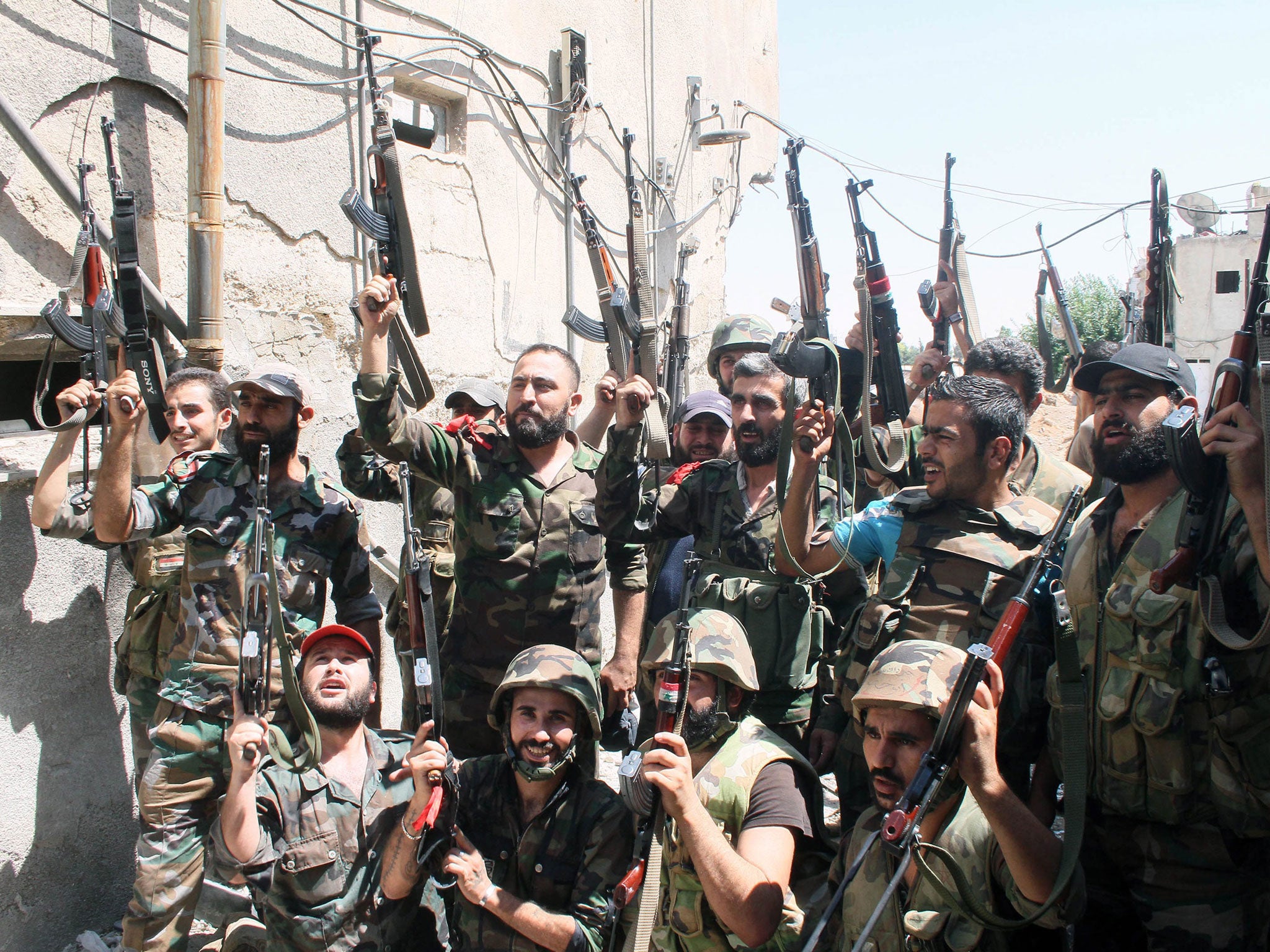Fierce fight for Damascus ‘traps 200 civilians inside mosque’
Opposition warns that unless the UN intervenes, thousands could be massacred

Two hundred civilians were reported to be trapped inside a mosque in a suburb of Damascus on Sunday night as fighting continued to rage outside between opposition fighters and forces loyal to President Bashar al-Assad. The country’s main Western-backed opposition group, the Syrian National Coalition, called on the United Nations to send “a strong warning” to President Assad that he “must immediately release” the civilians pinned inside Qaboun, a suburb to the north of the Syrian capital.
The coalition warned of a “massacre of thousands of civilians”, as a large number of armoured vehicles and elite forces reportedly entered the area late on Saturday night. Another opposition group, the Local Co-ordination Committees, claimed that most of the civilians held in the al-Omari mosque were women and children. It also reported that 11 people had died in heavy fighting in the area yesterday.
Infighting among rebel forces has reportedly continued in the wake of Thursday’s assassination of Kamal Hamami, a leading member of the Free Syrian Army, by the al-Qa’ida-linked Islamic State of Iraq and the Levant. The Syrian Observatory for Human Rights reported clashes between FSA fighters and Islamic State militants at a checkpoint in the Bustan al-Qasr neighbourhood in the south of Aleppo. FSA colonel Abu al-Tayeb claimed his men had managed to drive the rebels out of the area.
Islamic State forces captured the checkpoint, which separates the rebels from government-controlled areas, earlier in the week. In a bid to strangle government-held districts it closed the checkpoint, frustrating residents whose food supplies were curtailed at the start of the holy month of Ramadan. Residents demonstrated against the blockade on Friday, one of three protests against Islamists in the city last week.
It is believed that foreign fighters allied with the al-Qa’ida group were responsible for Friday’s assassination. The FSA’s Supreme Military Council has demanded that Islamic State commanders hand over those responsible, although the FSA has appeared to step back from the aggressive statements it issued against the group after the killing on Friday, saying that it wished to continue working with the Islamic State against President Assad.
“They are welcome if they help us fight the regime,” Colonel Abdel Rahman Suweis, a member of the FSA Supreme Military Council, told Al Jazeera. “But if they want to cause strife, impose a new understanding of religion and make Syria another Afghanistan, we will take the necessary measures,” he said.
The comments came as Taliban commanders in Pakistan said that they, too, are now involved in the fight in Syria. “When our brothers needed our help, we sent hundreds of fighters,” said a senior commander of Tehreek e-Taliban, as the Pakistan Taliban is known. He added that videos of those fighters in action would be released in the coming days.
The Taliban is ideologically similar to al-Qa’ida and many international jihadists have trained in the Pashtun areas along the Afghan border. Another Taliban commander stated that the principle of reciprocity had kicked in.
“Since our Arab brothers have come here for our support, we are bound to help them in their respective countries and that is what we [have done] in Syria.” The group has established at least one camp in Syria and the BBC reported that 12 “experts in warfare and information technology” had also been sent to Syria.
The new contingent of fighters is part of a growing number of foreign jihadists in Syria, whom Syrian state media have held responsible for attacks since the conflict began in March 2011. The Syrian State news agency Sana claimed 1,500 foreign fighters had entered the country last week alone.
Benjamin Netanyahu on Sunday refused to confirm whether Israel was responsible for a series of explosions that rocked the port city of Latakia on 5 July. Israel has been accused of launching a missile strike from one of its submarines on a consignment of Russian-made anti-ship weapons, and has in the past targeted other weapons inside Syria to prevent them falling into the hands of Hezbollah. “I am not in the habit of saying what we did do or didn’t do,” Mr Netanyahu told CBS’s Face the Nation.
Subscribe to Independent Premium to bookmark this article
Want to bookmark your favourite articles and stories to read or reference later? Start your Independent Premium subscription today.

Join our commenting forum
Join thought-provoking conversations, follow other Independent readers and see their replies